Oura Ring vs Fitbit Charge 6: Which one is better? I put these two premium fitness trackers to the test
Oura Ring vs Fitbit - which one will you choose? Here, health journalist Ciara McGinley weighs up the two premium fitness trackers
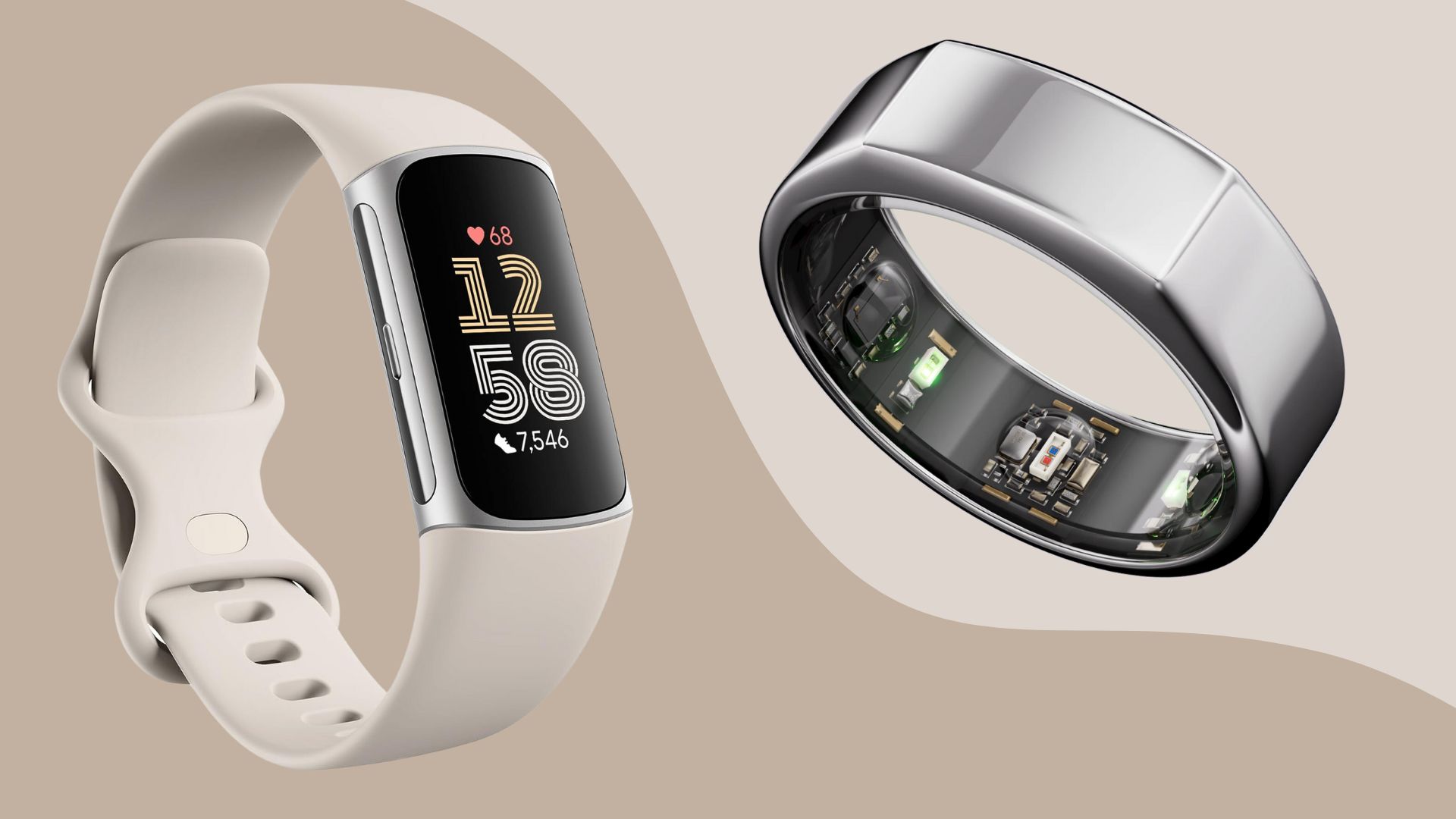

It's worth weighing up the Oura Ring vs Fitbit if you're looking for a new fitness tracker. With new releases from both brands offering complete insights into your health and wellbeing, there's never been a better time. We’ve put the two side by side to see how they deliver when it comes to tracking activity and sleep, and to help you find the best tracker to support your lifestyle.
In 2024, your pick of the best fitness trackers shoud fit seamlessly into your life and your wardrobe. The Oura Ring Generation 3 and Fitbit Charge 6, both released in the last year, offer a seamless design and various colour options with plenty of advanced health and wellness features.
As a health journalist, I’ve tested a variety of fitness trackers over the years, from the best Fitbits to the most advanced Apple Watch. So, I put the Oura Ring Generation 3 and the Fitbit Charge 6 to the test to help you find the best fitness wearable to support you on your health and wellbeing journey.
Oura Ring vs Fitbit
Oura ring vs Fitbit: An overview
The Oura Ring Generation 3 and the Fitbit Charge 6 are premium trackers that aim to offer a full understanding of your health. Both trackers record daily movement activities, from step count to specific exercise sessions, and holistic areas of wellbeing like sleep and stress levels. They will also flag when something's up - for example, if your heart rate is higher than usual over an extended period.
The Fitbit Charge 6 is a standard watch-style tracker while, as the name would suggest, the Oura Ring is a compact ring that fits around the finger. Unless you opt for the bright orange Charge 6 colourway, both devices sit discreetly on the hand or wrist.
When it comes to weighing up these two fitness trackers, it’s hard to say that one is better than the other. It all comes down to personal preference. The Fitbit really excels in the activity-tracking department while the Oura Ring is superior when it comes to sleep tracking and an insight into health and wellbeing from a rest and recovery lens.
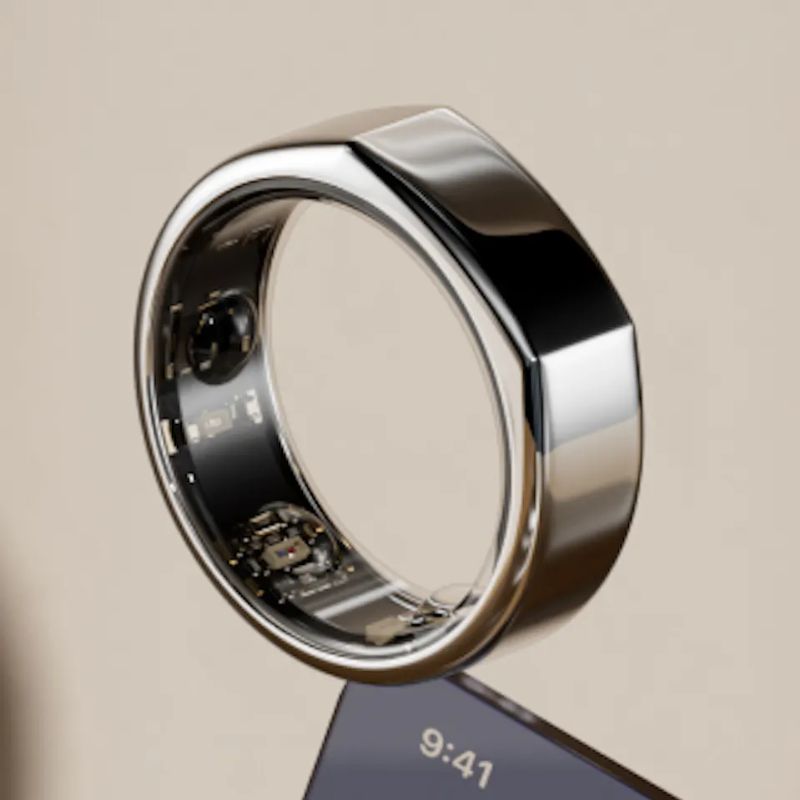
The Oura Ring is one of the latest and greatest innovations in fitness tracking, making improving your health more accessible by prioritising daily movement, rest and recovery. While pricier than the Fitbit counterpart, its worth it if you've got the budget to spend.
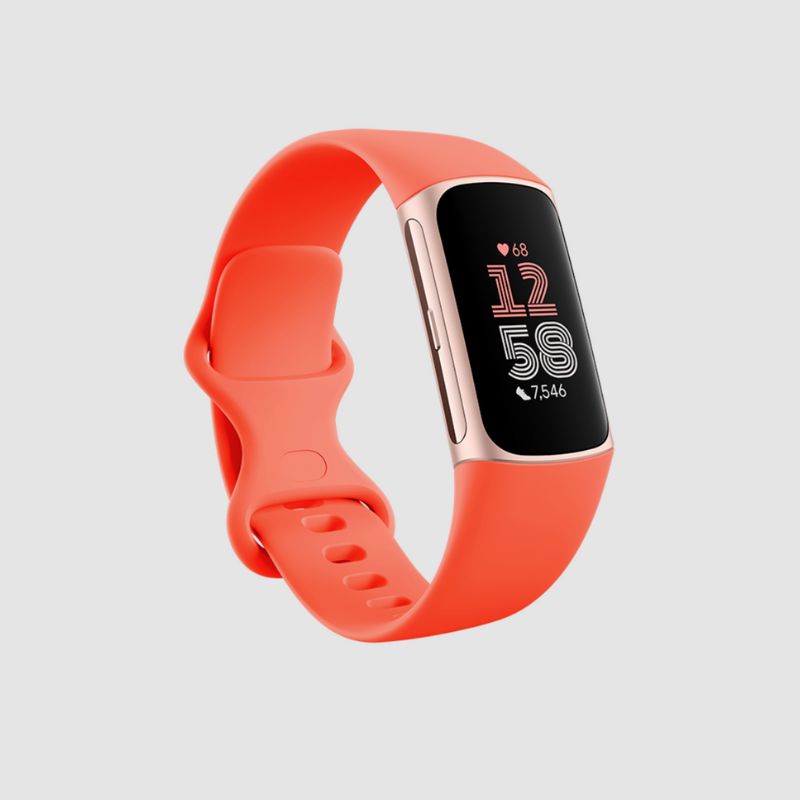
The newest Fitbit from the brand is the Charge 6 - new and improved in every way possible. From a more streamlined design and exciting colourways to better heart rate monitoring compared to the Charge 5, this is the fitness tracker to buy if you're looking for a reasonably-priced smartwatch in 2024.
Oura Ring vs Fitbit: Design
One of the biggest differences between Oura Ring vs Fitbit is the design. The Fitbit Charge 6 is a traditional fitness tracker with a touch-screen face and wristband, while the Oura Ring style is fairly new in the wearable world.
Sign up for the woman&home newsletter
Sign up to our free daily email for the latest royal and entertainment news, interesting opinion, expert advice on styling and beauty trends, and no-nonsense guides to the health and wellness questions you want answered.
On the Fitbit, you can check your stats and monitor your workouts in real-time with a wrist tap. It’s also a great option for those who want a tracker that doubles as a watch. The Oura Ring is screen-free so it tracks all the usual metrics and delivers the data to the app on your smartphone.
In a world of constant notifications, the Oura Ring may offer a more mindful approach to tracking. I enjoyed going screen-free and knowing that my ring tracks my activity and sleep and sends the data to my app. It added a tech boundary I needed as I find it easy to fall into the habit of constantly checking a tracker when it’s on my wrist - and this was also the case when I reviewed the Oura Ring vs Apple Watch.
Both devices are water-resistant and designed to be worn 24/7. While the Oura Ring is sleek and comfortable to wear (I hardly noticed it as I went about my day), I did have to remove it when strength training with certain equipment, such as barbells. The Fitbit could sit comfortably on my wrist during all my workouts.
Activity tracking on Oura Ring vs Fitbit
Both the Oura Ring and Fitbit monitor activity, analyse metrics such as daily steps, active calorie burn and hourly movement. However, when tracking workouts, the Fitbit comes into its own.
The Fitbit automatically detects and tracks over 40+ workout types. It also analyses the time you spend in target heart rate zones to offer insight into your weekly active zone minutes (the brand suggests banking 150 active zone minutes each week to support cardiovascular health). There’s a built-in GPS so runners and walkers can leave their phones at home and still track their pace and distance. You can also link your Fitbit to other fitness apps like Strava and Runkeeper.
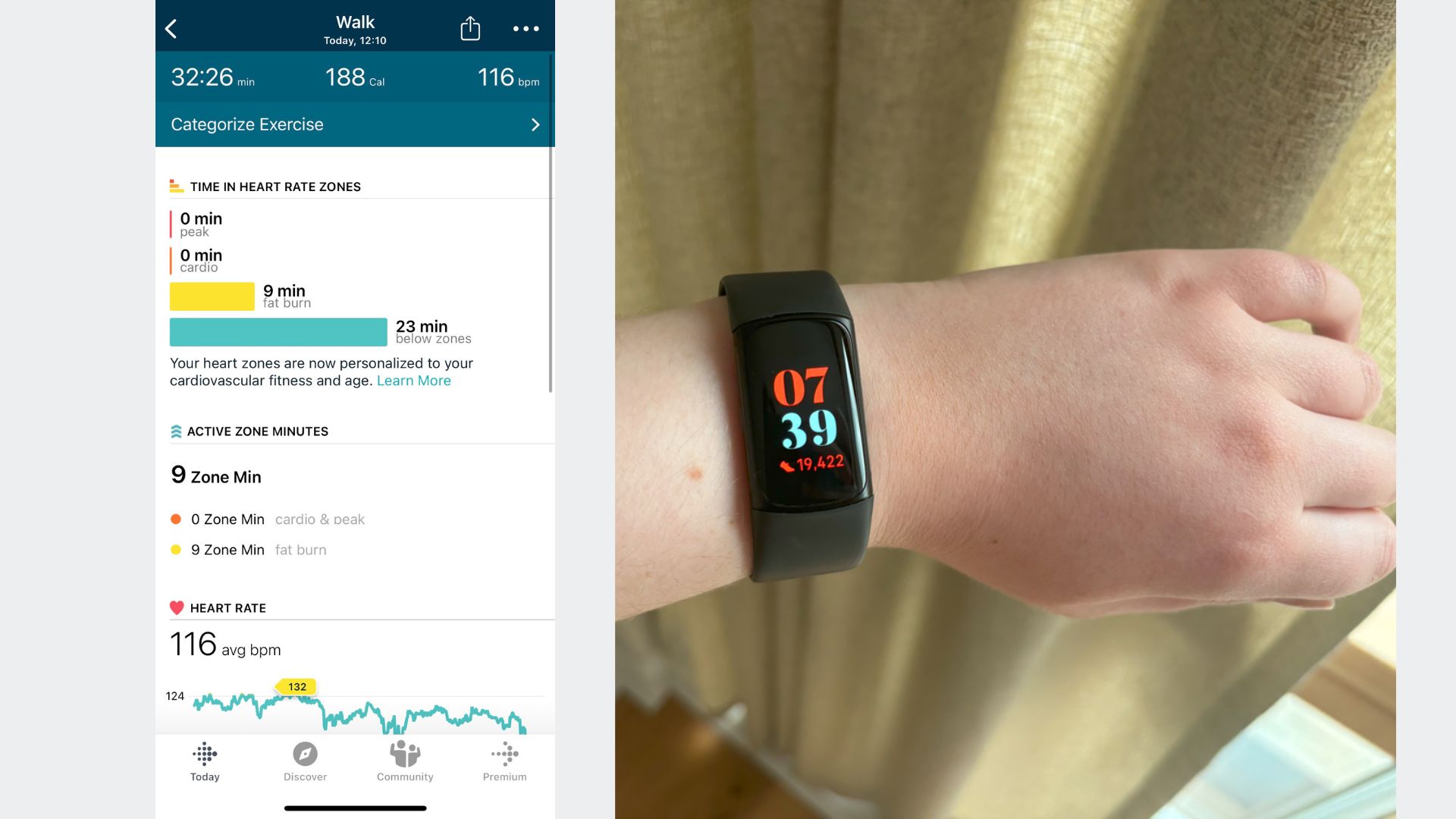
The Fitbit Charge 6 can automatically track activities like walking, in case you forget to start an exercise program.
In contrast, the Oura Ring takes a more holistic view of activity and counts everything from walking and running to gardening and housework as part of your activity goals. These everyday activities are forms of non-exercise activity thermogenesis (NEAT) - all kinds of movement outside of exercise that helps to boost cardiovascular health and help with weight maintenance. It uses technology that automatically tracks finger movement, so it's not a problem if you forget to track your workout.
While the Oura Ring is great for tracking walking and running, it wasn't always able to detect my mat-based workouts like yoga and full-body Pilates workouts. I added these workouts manually in the app afterwards.
What I loved about the Oura Ring is that it changed my activity goals based on my recovery, offering me a more mindful approach to movement. For example, if I’d trained hard the previous day or had a night of disrupted sleep, it would reduce my daily steps and active burn goals, encouraging me to focus on recovery and rest. Another activity tracker - the WHOOP 4.0 is similar to the Oura Ring in this way. It felt like a breath of fresh air in a world of fitness wearables designed with activity in mind. Instead of trying to hit a set movement goal every single day, it encouraged me to tune into my body and what it needed, and some days that was rest.
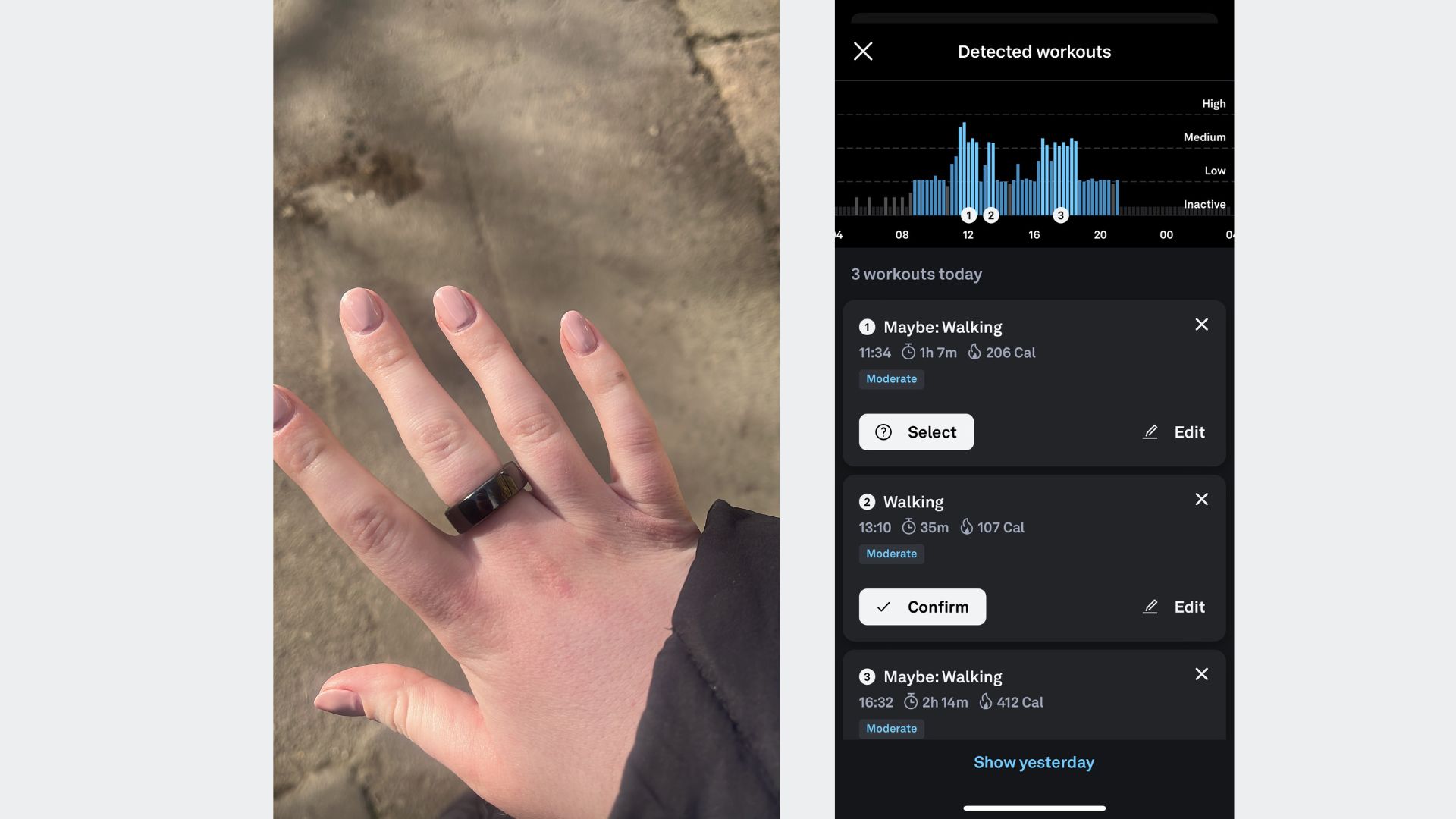
The Oura Ring is a discreet ring that automatically tracks your activity through finger movement.
Sleep tracking on Oura Ring vs Fitbit
The Oura Ring really stands out from the crowd when it comes to sleep tracking. While most fitness wearables have been designed with activity in mind, the Oura Ring has prioritised sleep insights and it shows.
The Oura Ring analyses data from the lens of recovery, focusing on how activity and sleep impact your body. The ring tracks various metrics - including total sleep time, sleep efficiency, resting heart rate and sleep stages. The quality of your sleep then determines your Readiness Score, giving you an insight into how well your body has recovered from the previous day’s activity and whether you should focus on higher-intensity activities or low-impact movement for the day ahead.
As the Oura ring is worn on the finger, it reads data directly via the arteries. It's also one of the only devices that takes temperature directly from this the skin on the finger too, so it can give you accurate insights into how your body is recovering or how illness may impact your activity.
The Oura Ring excels at sleep tracking and recovery - but the Fitbit Charge 6 doesn’t do a bad job either. It also tracks sleep time, sleep efficiency, resting heart rate and sleep stages to determine an overall sleep score. Plus, it offers a Readiness Score giving you an indication of how ready your body is for activity. When I compared the stats of both devices post-sleep there was only a slight variation in the data. On one occasion, for example, the Fitbit tracked 45 minutes more Deep Sleep compared to the Oura, and the Oura tracked 30 minutes more REM Sleep compared to the Fitbit.
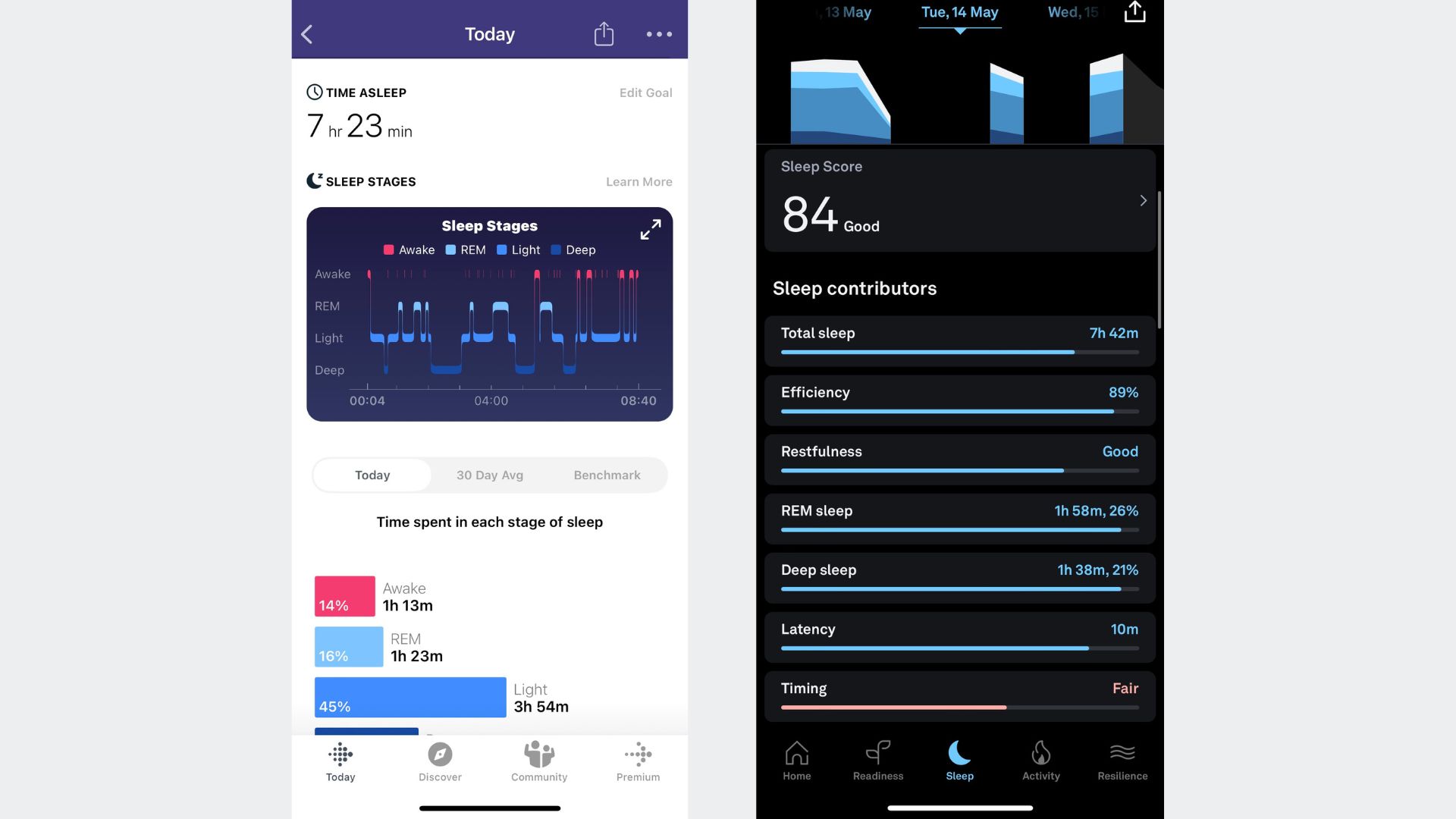
Both Oura Ring and Fitbit automatically track the stages of your sleep cycle, with further insights available on Fitbit Premium.
Accuracy
I noticed a disparity between Oura Ring and Fitbit activity, particularly the step count. Some days the Oura Ring would track around 1,000 - 2,000 more steps per day than the Fitbit and on other days it would track fewer steps than the Fitbit.
There was also a slight variation in sleep tracking, stages, and duration. While it’s hard to know which device is more accurate, the Fitbit is considered one of the best devices to record activity, while the Oura Ring is known for its excellent sleep-tracking abilities. This is the criteria to keep in mind when choosing between Oura Ring vs Fitbit. Which do you value more? Sleep or activity tracking?
Oura Ring vs Fitbit: Extras
Most fitness wearables today, whether you opt for one of these two or the newest Apple Watch, have additional resources to support your health and wellbeing journey, from personalised workout recommendations to recipe suggestions and coaching insights.
Oura’s library of resources is growing, but Fitbit really stands out in this category. With a Fitbit Premium subscription (from £7.99 a month), you can access a library of workouts including HIIT, cycling, strength training, dance cardio and more - all led by Fitbit trainers. You can also view recipes and listen to audio meditations to support recovery. Plus, you can access a monthly wellness report with an overview of your health data and an insight into how your body responds to stress.
Oura keeps its users in the loop with regular newsletters highlighting new features or updates and expert advice on boosting your wellbeing, from how to sleep better to top tips for your morning routine. An 'Explore' section on the app houses meditation, breathwork and sleep audio tracks. These helped me to nod off quickly and I even found that on the nights I listened to the sleep tracks I clocked up a better sleep score - perhaps a coincidence, but it helped me relax. It was a nice way to close out my day. Oura also has a variety of educational short videos and slideshows on a range of topics from bedtime tips to meal timing and the effects of caffeine on sleep.
Price
While both trackers are an investment, the Fitbit Charge 6 costs slightly less than the Oura Ring. The Oura Heritage starts at £299 or £349 for the Horizon, while the Fitbit Charge 6 costs £139. Compared to other Fitbit devices, like the Fitbit Versa 4 or Sense 2, this is relatively budget-friendly. It's also worth weighing up Fitbit Versa 4 vs Charge 6 if you are thinking about either device as they are fairly similar.
The buying process of the Oura Ring is a little more complicated than the Fitbit as well. Firstly, you have to order a sizing kit to ensure you purchase the right ring size. The kit comes with eight plastic rings of different sizes to help you find your perfect fit. Once you’ve found the right size for you, you can order your Oura Ring from the UK website.
You’ll also need to invest in the brand’s individual subscriptions to get the most out of the Oura Ring and Fitbit. The Oura Ring subscription costs £5.99 per month - and you won’t have access to all your metrics without it. In fact, on the free plan, you will only have access to your three daily scores (Readiness, Sleep and Activity) and won’t be able to see the data that contributed to those scores.
A Fitbit subscription costs £7.99 per month or £79.99 per year. While it's not essential, I'm not sure the Fitbit Charge 6 would live up to expectations without it - especially compared to the Oura Ring offering. If you don't sign up to Fitbit Premium, you won’t have access to your Daily Readiness Score for recovery insights, a detailed overview of your sleep score, stages and trends, or an insight into your stress levels. You also won’t get access to all the extra workout and nutrition resources to support you on your health and wellbeing journey.
If you're looking for a fitness tracker without a subscription, it's worth considering the Samsung Galaxy Smart Ring as a direct alternative to the Oura Ring. Garmin devices make for a good alternative to Fitbits.
The verdict: Oura Ring vs Fitbit
When it comes to choosing between the Oura Ring and the Fitbit, it all comes down to personal preference and what you are looking for in a fitness tracker.
The Oura Ring is best for those who want a tracker that takes a more holistic and mindful approach to health, offering detailed insights on sleep and recovery. The focus of this device is leaning into what your body needs so it will cleverly adjust activity recommendations based on your sleep and recovery, and even suggest Rest Mode if your Readiness Score is super low. This pauses activity goals and scores so you don’t feel like you’re falling behind when you need to rest.
For those who want a fitness tracker that acts more like a smartwatch, the Fitbit Charge 6 might be more suitable. Not only does it offer detailed and accurate activity tracking, it can also be linked to other apps including Google Maps and YouTube Music. It can even receive calls and text messages and link to Google Wallet, so you can pay on-the-go. The Fitbit Charge 6 also comes with a library of workouts and is unique compared to other Fitbit types in that it can be linked to other exercise machines, such as treadmills, bikes and rowers.
Ciara McGinley is a meditation practitioner and health journalist. She qualified as a meditation teacher with the British School of Meditation in 2020 and is the founder of Finding Quiet, a series of classes, workshops and retreats that combine meditation practices and mindfulness techniques to make mindful living realistic in an always-switched-on modern world. She is all about bettering that mind-body connection but believes wellness looks different to everyone.
Ciara is also the former Health Channel Editor at woman&home and has covered all things health and wellbeing for years, from fitness to sleep to relationships.
-
 We're in awe of Sienna Miller's easy-going and 'piece-y' hairstyle and how perfect it is for spring
We're in awe of Sienna Miller's easy-going and 'piece-y' hairstyle and how perfect it is for springThis laid-back hairstyle is - quite literally - making waves this season
By Naomi Jamieson Published
-
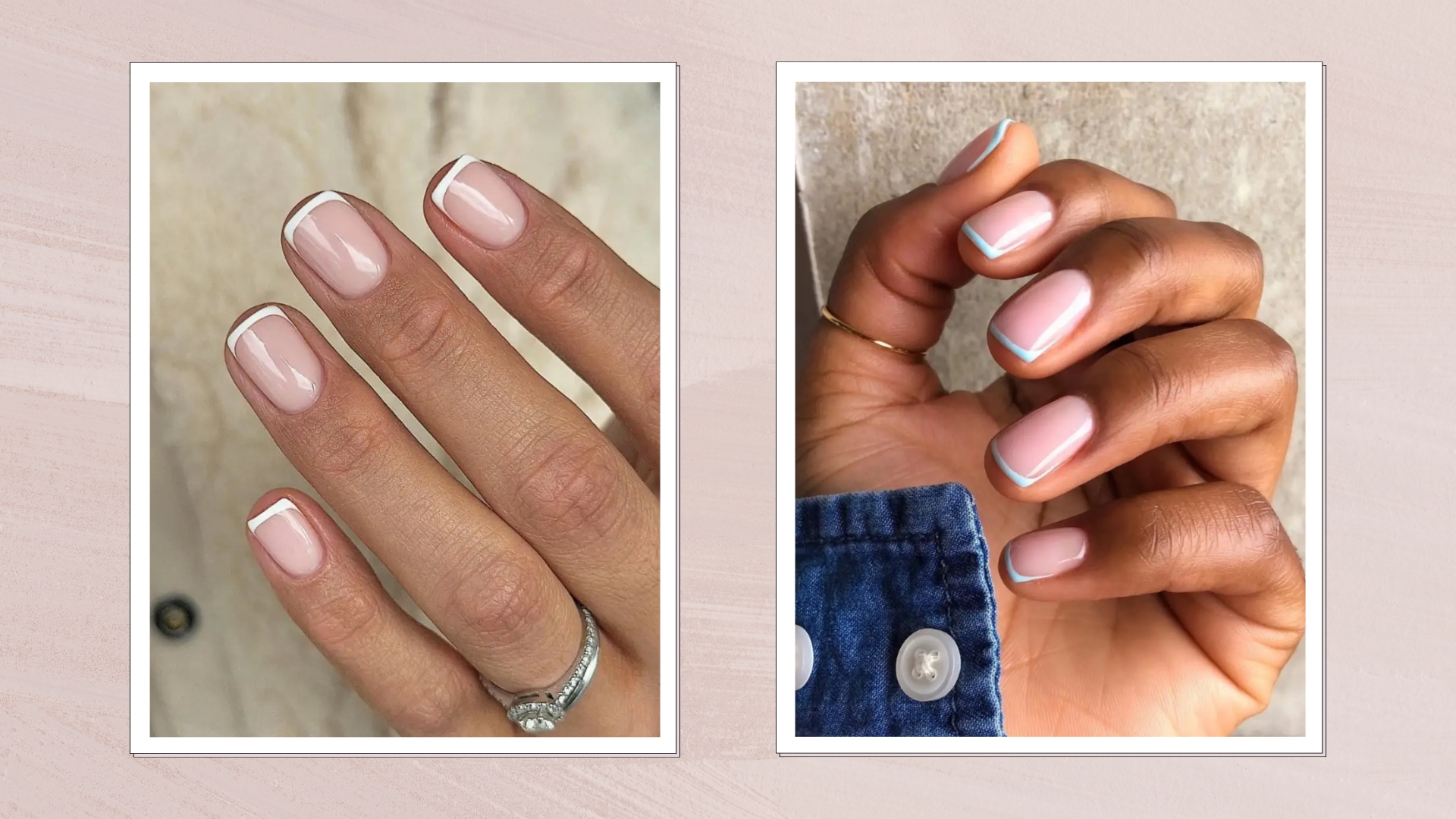 We never thought we'd see this 'dated' manicure make a chic comeback, but here it is - and we're on board
We never thought we'd see this 'dated' manicure make a chic comeback, but here it is - and we're on boardClean and angular, short square French tips are a go-to this season for a practical but stylish manicure...
By Naomi Jamieson Published